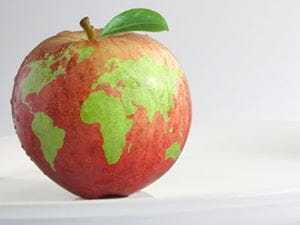
Why is the US so far behind in banning foods or addictives that could kill us? Be it political, high-paid corporate lawyers, lack of evidence, or just denial. As consumers it’s ultimately up to us to choose better foods, investigate reports on our own, and make decisions that benefit our families. Below are foods banned in other countries as being potentially harmful to humans and still being sold in the states.
Farmed Raised Salmon
In New Zealand farmed raised salmon is banned due to the chemicals the fish is fed such as chemicals, grains, antibiotics not fit for even human consumption. Australia also forbids this practice.
BHT
BHT was listed as being a carcinogen, and many European countries banned BHT from being sold. BHT is a chemical used to preserve food and is found in pet foods, cereals, and chips.
Food Dyes
Blue dye has been linked to brain cancer and chromosomal damage, while Yellow 5 and Yellow 6 have been found to cause ADHD, migraines and cancer. A study in the 1970s links Red 2 to causing tumors in rats. Many of these food dyes are banned in Europe. Blue 1 is banned in France and Finland. Blue 2 is banned in Norway after it was linked to brain cancer. Great Britain asked it food companies to stop article colors in foods. Many companies are making efforts to replace synthetic food dyes with natural alternatives.
Brominated Vegetable Oil
Brominated vegetable oil is used in soft drinks to prevent citrus particles from floating to the top. The chemical was first used by scientists as a flame retardant for children’s clothes. Over 100 countries banned the BVO. PepsiCo Inc banned it from its products in 2013.
Potassium Bromate
Potassium bromate is used to hold bread dough together allowing it to rise higher during baking. Studies since 1982 documented that the additive caused cancer in lab rats. Potassium bromate was banned in Canada, China and in Europe. In the US, California allows manufactures to sell products with PB if there is a warning label. Although, most of the PB is destroyed during the baking process, but traces still can be found.
Europe banned the fat substitute olestra found in chips because the chemical can reduce the absorption of vitamins A, D, E and K. Genetically engineered foods are banned from by the EU and the reasons are endless.
GMOs
Research shows that animals ingesting GMO foods like soy, corn, and grains suffered from cancer, organ damage, and death.

